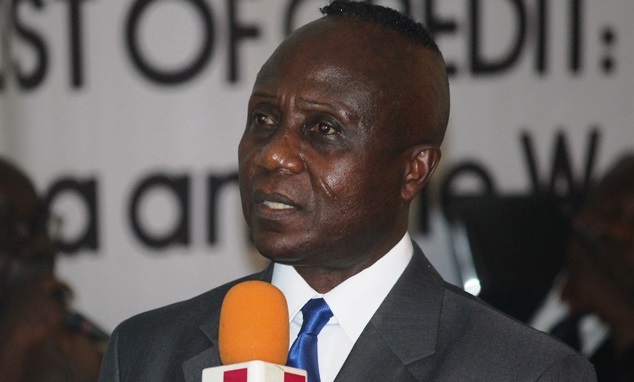
Boost revenue mobilisation to avoid financial crunch — Dr Kwakye
Fiscal policy think tank, the Institute for Fiscal Studies (IFS) has warned of a financial crunch in the economy unless the government institutes aggressive and credible measures to help boost revenue mobilisation.
The crunch will be the outcome of lagging revenue collections, which has already forced a 1.1 per cent cut in public expenditures from GH¢58.1 billion to GH¢55.9 billion.
Given that increased public spending is needed to spur economic growth for revenue collections to pick up, the institute said cutting expenditures, as happened in the mid year review, could stifle economic growth in the short to medium term.
The Director of Research at the IFS, Dr John Kwakye, sounded the warning at a press conference in Accra yesterday.
The institute used the press conference to comment on the mid-year budget review that was presented on July 31.
Its warning followed a 0.9 per cent drop in revenue target from GH¢44.5 billion to GH¢43.1 billion in the mid-year budget review.
While fiscal consolidation through strict adherence to spending is good, Dr Kwakye said: “The IFS wishes to emphasise that the situation where a severe shortfall in government revenue has led to a drastic reduction in expenditure in critical areas in the bid to meet strict deficit targets is neither desirable nor optimal.”
“If the situation is not properly addressed, the country faces a severe financial crunch, which threatens general economic activity and growth,” he said.
Measures
Dr Kwakye mentioned the need to improve tax revenue performance of the key segments, including large business taxpayers, high net-worth individuals, and the informal economy, strengthen the management and compliance risks, revamp the management of the Value Added Tax (VAT) and address the accumulation of tax debts while enhancing collection enforcement.
He also advised the government to increase the effectiveness of tax audit investigations, reducing exemptions granted to investors and plug leakages that arise from under-invoicing of imported goods.
He said the IFS was convinced that revamping of the bonded warehousing system and elimination of fraud that involved collusion between taxpayers and tax collection officials could help strengthen revenue collections.
The Executive Director of the institute, Prof. Newman Kusi, advised the government to take the recommendations seriously to help ensure that growth was not sacrificed for fiscal consolidation.
Although the year is left with five months, Prof. Kusi said the government could still chalk up some enviable achievements if it implemented those recommendations.
Revenue target unrealistic
The Head of Research at the IFS also cast doubts on the ability of the government to meet its revised revenue target of GH¢43.1 billion, explaining that the sluggish growth in the non-oil sector meant that revenue inflows would be subdued.
“It is the IFS’ view that the revised target remains ambitious. The reason is that in the first half of the year, revenue growth was just 6.5 per cent year-on-year, and to achieve the new target would require revenue to increase by 48.3 per cent year-on-year in the second half of 2017.
“While we recognise the potential for higher revenue performance in the second half of the year, a jump of 48.3 per cent year-on-year seems unrealistic,” Dr Kwakye said.
Deficit target elusive
A Senior Research Fellow at the IFS, Dr Said Boakye, later told the Daily Graphic that a target of GH¢37 billion plus or minus GH¢1 billion would have been “much more realistic.”
“For the benefit of the doubt, their level of efficiency and the others, let’s say they can do more but as for hitting GH¢40 billion this year, it will be extremely difficult,” he said.
Dr Kwakye observed that instead of sacrificing public spending to be able to meet a strict deficit target, the government should rather spend more to help stimulate economic activities.
These increased activities, he said, would then lead to strong revenue generation and collection for the government.
As a result, he said the fiscal deficit target of 6.3 per cent of gross domestic product (GDP) for 2017 was too tight, given that the deficit ended last year at 9.3 per cent of GDP.
He said the desirable target would have been around eight per cent of GDP, citing the need for flexibility in government finances to spur growth.